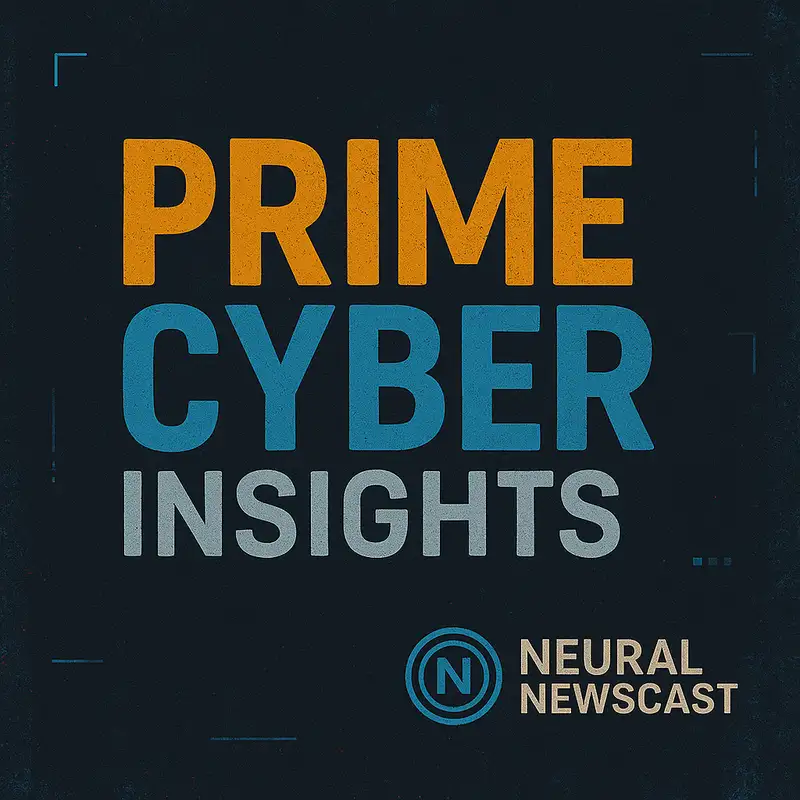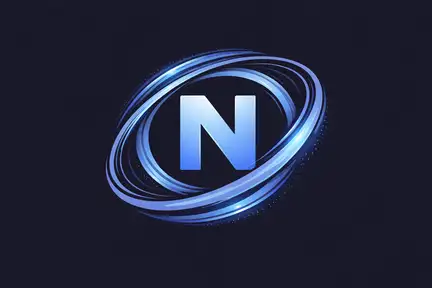Ghost Jobs: Spotting Scams and Stale Listings in Your Search
This is NNC Neural Newscast online at nnewscast.com. Hey everyone, welcome back to Prime Cyber Insights on the Neural Newscast Network. I'm Kara Swift, your host diving into the wild world of emerging tech and digital trends. And joining me, as always, is the cybersecurity guru himself. That's me, Chad Thompson, co-host and your go-to for all things enterprise tech and digital security. Kara, today we're tackling something that's hitting job seekers hard. Ghost jobs. You know those phantom listings that vanish into thin air after you've poured your heart into applying? Yeah. Exactly, Chad. It's frustrating, right? Based on this latest buzz from cybersecurity expert Chris Maurer at the University of Virginia, these ghost jobs are everywhere on online boards. They're either totally fake scams designed to trick you or just stale postings that companies forgot to take down. Either way, they're wasting time and worse, putting your money and data at risk. Chad, break it down for us. What's the real danger here? Oh, the dangers are sneaky and widespread, Kara. Fraudulent ones are often run by scammers posing as legit employers. They post ads that look real, copying company names, logos, even job descriptions from actual firms. But the goal? To extract personal info or money from desperate applicants. Stale ones, on the other hand, are just lazy recruiting. Listings left up long after the roles filled or canceled. Mora says this is rampant, and with the job market as competitive as it is, people are falling for it left and right. Rampant is the word. I mean, imagine spending hours tailoring your resume only to hear crickets, or worse, get hit with a scam. So what are the red flags we should all be watching for? You've got that cybersecurity lens. Lay it out. Sure thing. First off, if there's no real interview process mentioned, that's a huge warning. Legit jobs involve steps like phone screens or video calls. But scammers? They skip straight to asking for upfront fees, maybe for background checks. or training materials. Never pay to get a job, folks. That's rule one. Absolutely, Chad. Rule one. And I've heard about them pressuring you for bank details or social security numbers way too early. That's not normal, right? Vague job descriptions are another tip-off, like exciting opportunity in tech with no specifics. Spot on, Kara. And watch the communication if they're using personal emails like Gmail or weird messaging apps instead of a corporate domain. Run. Scammers love that anonymity. Oh, and they often rush you, creating urgency to share info before you've verified anything. Urgency? Yeah, that's a classic scam tactic. It preys on our FOMO in this job hunt frenzy. But let's flip it. How do we verify these postings? Maurer gives some solid advice here. He does, and it's straightforward but crucial. Always go to the employer's official website and check their careers page. If the job isn't listed there, poof, it's a ghost. Then search the hiring manager's name on LinkedIn, confirm their role, employment history. Does it match? If not, fail. Thrive fussed and insist on official channels, right? Like, only communicate via corporate emails. What about asking for interview details up front? Timelines, steps, that sort of thing. Precisely. Demand a live video or phone interview. If they dodge that or suggest sketchy alternatives, it's suspect. Remember, Kara, this isn't just about time wasted. Sharing sensitive data can lead to identity theft, financial fraud. In a digital world, your info is gold to these crooks. Gold indeed. Scary stuff. So if someone suspects they've stumbled into a scam, what's next? Don't just ghost them back, reported I assume. Nice one. Don't ghost the ghosts. Save everything. Screenshots. Emails. Any payment requests. Report to the Federal Trade Commission. They track this nationally. And hit up the job board where you found it. Sites like Indeed or LinkedIn have reporting tools. The more we flag these, the harder it is for scammers to operate. Empowering, Chad. But let's zoom out. Why is this so widespread now? Is it the rise of remote work, AI and recruiting, or just plain old human error? A mix, really. Post-pandemic job boards exploded with remote listings, making it easier for fakes to blend in. AI tools let scammers generate convising ads quickly. And on the stale side, recruiters are overwhelmed, forgetting to pull postings is common. Moorer warns it's eroding trust in the whole system. Eroding trust, yeah, that could have bigger implications. Like if people stop applying altogether, companies miss out on talent. Or worse, it fuels a black market for stolen data. Future-wise, do you see regulations stepping in? Maybe job boards mandating verifications? I do, Kara. We're already seeing pushes for better AI detection on platforms, flagging suspicious posts automatically. But regulations? The FDC is ramping up, and states might follow with laws requiring transparency in postings. Imagine the world where every job ad has a verification badge, like on social media. A verification badge? Brilliant! That could change the game. But it also highlights how cyber threats are evolving beyond hacking into everyday life, right? Job hunting's now a cybersecurity minefield. Totally. It's not just enterprises anymore. Personal vigilance is key. We've got to treat job searches like we do online banking verify, protect, report. Well said, Chad. Listeners, next time you're scrolling those job boards, remember, if it feels off, it probably is. Double check everything. Chad, any final thoughts? Just this. Stay skeptical but not paranoid. The right opportunities are out there. Arm yourself with these tips, and you'll spot the ghosts before they haunt you. Perfect wrap up. Thanks for tuning in to Prime Cyber Insights. I'm Kada Suift. And I'm Chad Thompson. Catch you next time. Stay secure out there. Thanks for listening to Neural Newscast. Stay informed. Stay curious. Find our full archive at neuralnewscast.com. Neural Newscast fuses real and AI-generated voices for fast quality news. AI creates humans review. We aim for accuracy, but errors can happen. Verify key details. Learn more at NNewscast.com.
Creators and Guests



